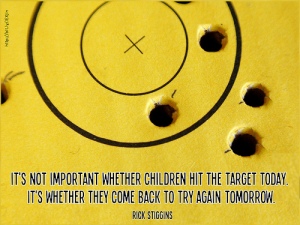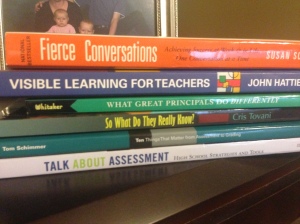Moving right along to Chapter 2 in Talk About Assessment, it comes down to this…

Flickr Some rights reserved by William M Ferriter
It is time to get on the Criterion Referenced bus. It should no longer matter how long it takes a student to meet an outcome, so long as they are moving towards and eventually meet this standard. Instead of sorting students we can certify that students have met a standard of achievement.
The Alberta High School Flexibility Project is redesigning high school experience and has had to rethink assessment and instruction. One of the project focus points was on credit recovery, much like criterion referenced assessment, it allows students to meet a standard when they meet it. At my school this turned into credit recovery, extension and acceleration and allows students to meet outcomes not always according to the semester system. Has this meant that students return to try and learn again? That they are more engaged and motivated to learn? The initial data, high school completion rates, credit completion and student engagement figures say yes. It works, it is not perfect but it is a work in progress.
But how does this prepare students for real life if they are given numerous chances to complete? It does, because education is changing and so must assessment. Think about the last time you had to learn something, what did you do?
I am trying to figure out how to make buns and I am struggling. They taste fine but they look horrible. So I researched a recipe and

tried it. It didn’t work. So I did a little more research and watched some videos. Still no good. So I thought I should switch from dinner buns to hot dog buns, no hot dog ever managed to get in those buns. Then I talked with a colleague who makes the most delicious and visually appealing, perfect buns and got some advice. Still no good. Next we are meeting and doing it together. In the meantime, my cinnamon buns look fantastic and I still attempt to make dinner buns when I think about it. Should we get multiple attempts to do something, learn something or should there be an arbitrary time when this learning must be complete? Do we want students who return and persevere or have a DEADline they need to meet to learn something?


